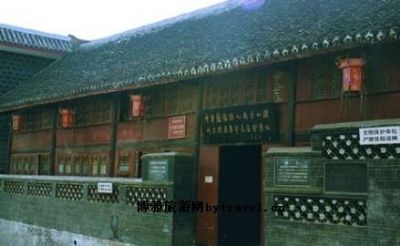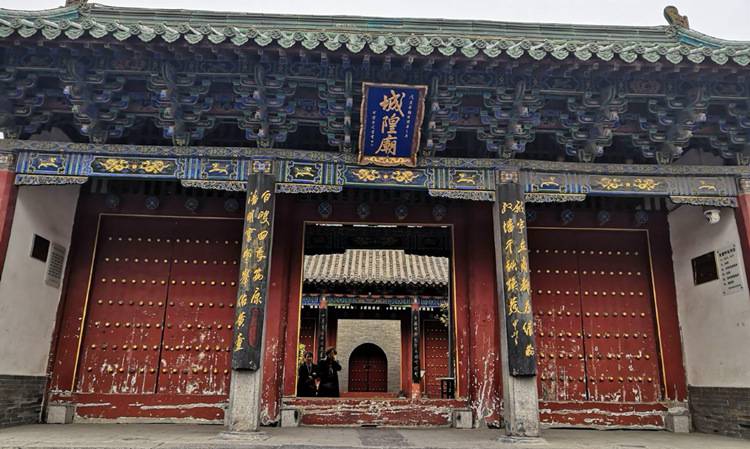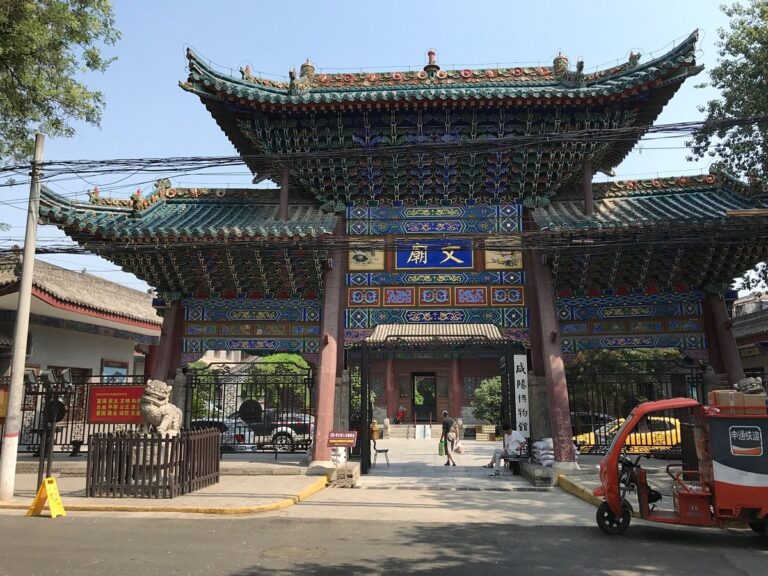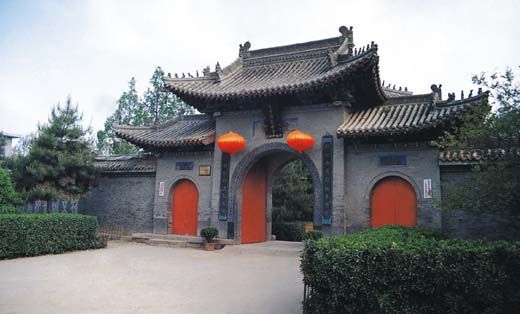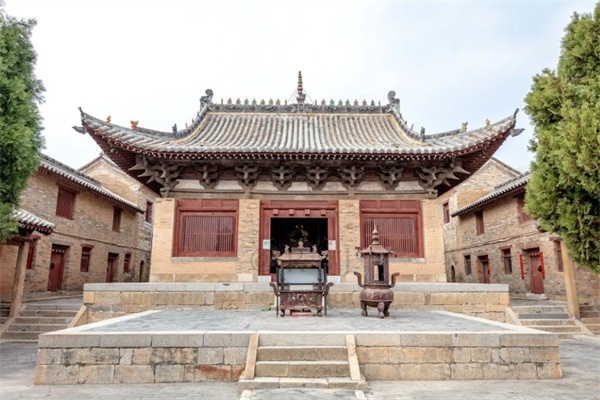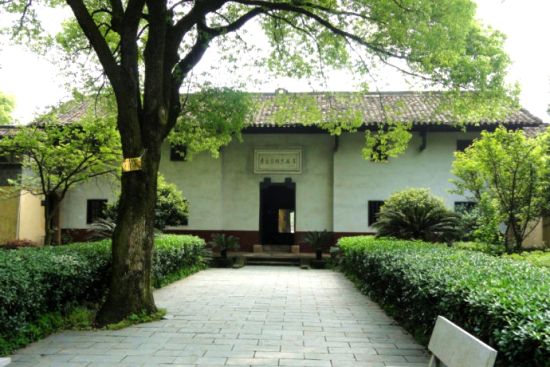Unveiling the Life of Zhou Enlai: Your Guide to Huaian Zhouenlai Guju in Huai’an, Jiangsu
An Essential Guide to Visiting Huaian Zhouenlai Guju
In This Guide
- An Essential Guide to Visiting Huaian Zhouenlai Guju
- The Rich History of Huaian Zhouenlai Guju
- Main Highlights: What to See at Huaian Zhouenlai Guju
- Planning Your Visit: A Practical Guide
- Tickets, Hours, and Booking
- How to Get There
- Local Cuisine and Accommodation
- Frequently Asked Questions
- Final Thoughts on Your Trip
Nestled in the heart of Jiangsu province, the Huaian Zhou Enlai Guju, or Zhou Enlai Former Residence, stands as a poignant testament to the life of one of China’s most revered leaders. This historic site not only marks the birthplace of Zhou Enlai, who played a pivotal role in shaping modern China, but also offers a glimpse into the rich tapestry of revolutionary history that unfolded within its walls.
Born on March 5, 1898, Zhou Enlai spent his formative years in this traditional residence, where he cultivated the ideals that would guide him throughout his illustrious career. The residence itself is a beautiful example of Su Bei architectural style, characterized by its gray bricks and elegant simplicity. Visitors can explore the very rooms where Zhou Enlai lived, providing a rare opportunity to connect with the past and understand the early influences that shaped his character and leadership.
As you wander through the meticulously preserved grounds, you will discover a wealth of cultural artifacts, including calligraphy and paintings donated by notable figures, which further highlight Zhou Enlai’s enduring legacy. Daily, thousands of visitors flock to honor his memory, reflecting the profound impact he had on both national and global stages.
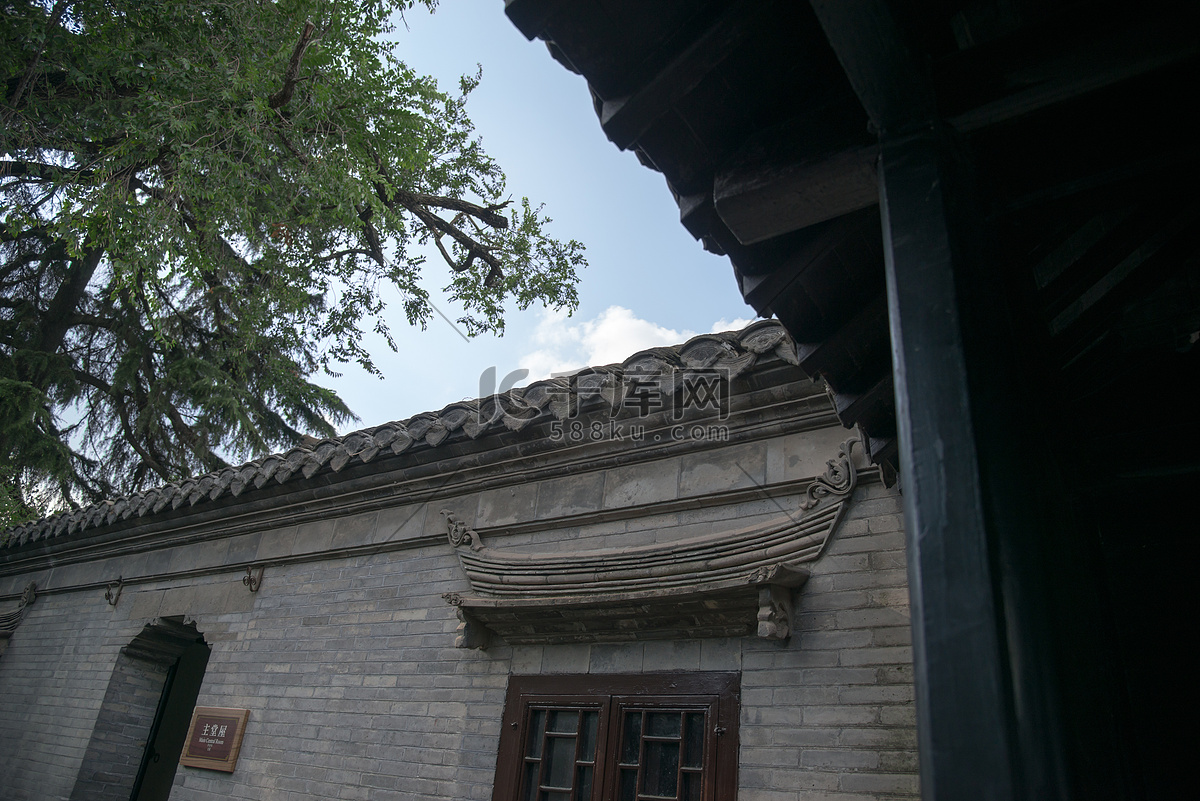
Huaian Zhouenlai Guju.
The Zhou Enlai Former Residence serves not only as a historical landmark but also as a vibrant educational hub, where the ideals of dedication and service continue to inspire new generations. Whether you are a history enthusiast, a student of politics, or simply a curious traveler, this site is an essential stop on your journey through Huaian, offering insights into the life of a man who devoted himself to the country and its people.
The Rich History of Huaian Zhouenlai Guju
Located in the heart of Huai’an, the Zhou Enlai Former Residence is a significant historical landmark that offers insight into the life of one of China’s most esteemed leaders. Zhou Enlai, born on March 5, 1898, spent his formative years in this quaint abode until the age of twelve, when he left for further education. This residence is not only a tribute to Zhou’s early life but also serves as a reminder of the broader historical and cultural context of the time.
The house itself reflects traditional Suzhou-style architecture, characterized by its grey brick walls and elegant tile roofs, presenting a serene environment that once cradled the dreams of a young Zhou Enlai. The property has been meticulously restored and transformed into a cultural site that attracts thousands of visitors annually. It stands as a symbol of Zhou’s humble beginnings and his subsequent rise to prominence as a key figure in modern Chinese history.
In the decades following Zhou’s departure, the house remained a private residence until it was designated a national heritage site. The establishment of the Zhou Enlai Memorial Hall adjacent to the former residence further solidified the site’s importance. The hall features extensive exhibitions showcasing Zhou’s remarkable life achievements, including his pivotal role in the founding of the People’s Republic of China and his contributions to international diplomacy.
Visitors to the Zhou Enlai Former Residence can explore not only the rooms where he lived but also various artifacts and personal items that belonged to him. The site encapsulates the spirit of dedication and service that Zhou embodied throughout his life. Furthermore, the surrounding gardens and tranquil setting provide a reflective space for visitors to appreciate the historical significance of the place.
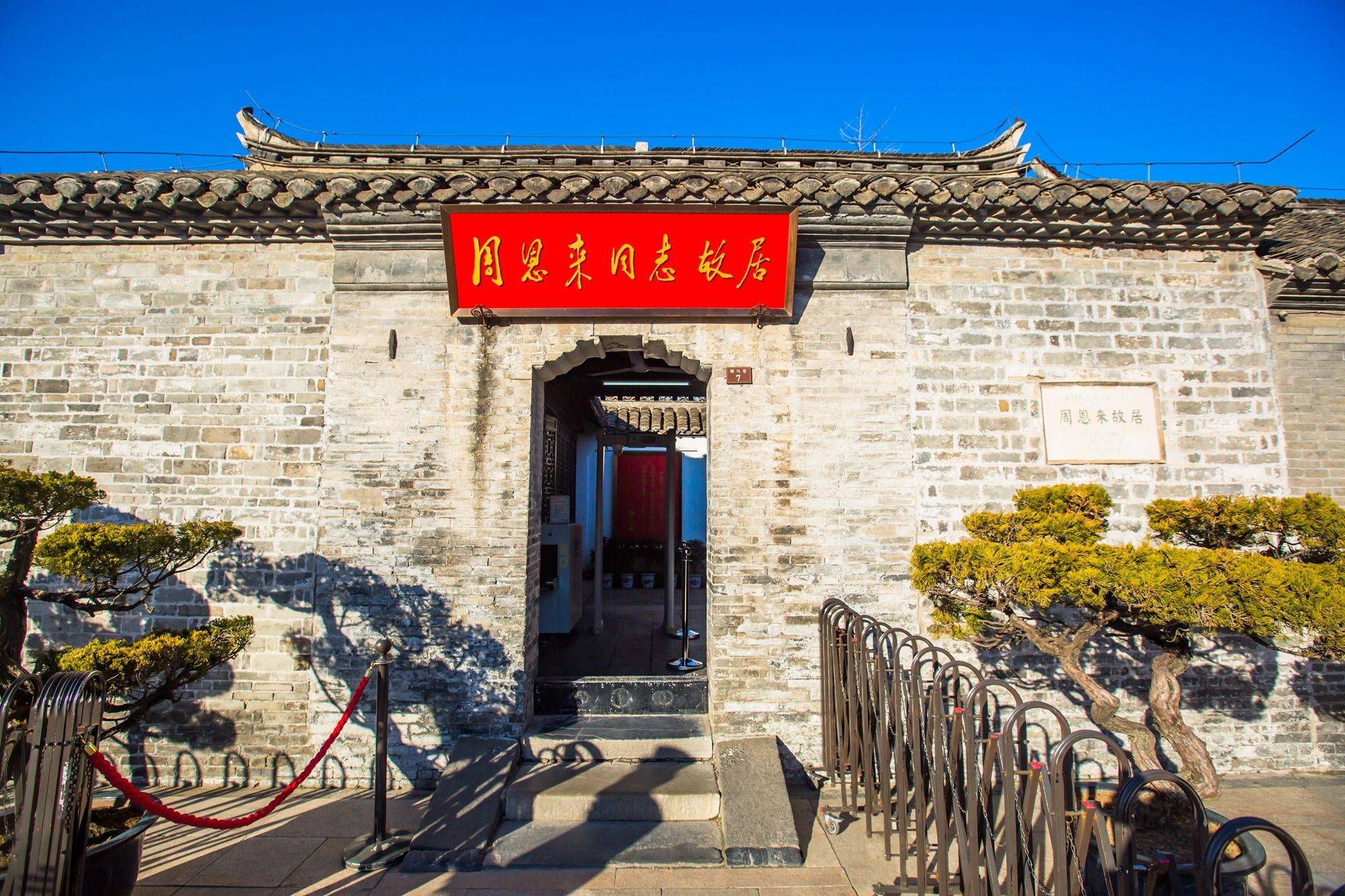
Huaian Zhouenlai Guju.
The residence has become a vital part of China’s cultural tourism, attracting scholars, students, and history enthusiasts eager to learn about Zhou’s legacy and the revolutionary era in which he lived. Its free admission allows for a wide demographic to engage with this slice of history, ensuring that Zhou Enlai’s story continues to resonate with future generations.
As a testament to his enduring influence, the Zhou Enlai Former Residence is not merely a historical site; it is a place where the past and present converge, inspiring visitors to reflect on the values of leadership, resilience, and dedication to one’s country.
Main Highlights: What to See at Huaian Zhouenlai Guju
Discover the rich heritage of Huaian Zhou Enlai Guju, the former residence of one of China’s most revered leaders, Zhou Enlai. Nestled in the historical city of Huaian, this site is not only a testament to Zhou’s early life but also serves as a cultural landmark reflecting the broader narrative of China’s revolutionary history.
Key Attractions
-
Historical Significance: Zhou Enlai was born in 1898 in a modest home adjacent to the current residence, where he lived until the age of 12. The house has been meticulously restored to showcase his childhood environment and the formative years that shaped his future as China’s first Premier.
-
Art Gallery (书画苑): Within the estate, you can find an art gallery displaying over a hundred exquisite calligraphy and painting pieces contributed by renowned artists such as Zhao Puchu and Liu Haicu. Among these artifacts are inscriptions left by notable leaders, including Jiang Zemin and Li Peng, paying homage to Zhou Enlai’s legacy.
-
Cultural Exhibits: The residence includes various exhibitions that narrate Zhou’s life, achievements, and contributions to China. Visitors can explore memorabilia and documents that highlight his diplomatic efforts and political philosophies.
-
Scenic Gardens: The grounds around the residence feature serene gardens with traditional Suzhou-style landscaping, providing a peaceful backdrop for reflection and photography. The iconic hundred-year-old elm tree on the property is a notable highlight, symbolizing longevity and resilience.
-
Memorial Hall: Adjacent to the residence, the memorial hall offers deeper insights into Zhou Enlai’s life and his impactful role in Chinese history. The architectural design of the hall is both impressive and solemn, enhancing the visitor experience with its reflective ambiance.
-
Free Admission: One of the most appealing aspects of visiting Huaian Zhou Enlai Guju is that entry is free, making it accessible for everyone to explore this crucial piece of Chinese heritage.
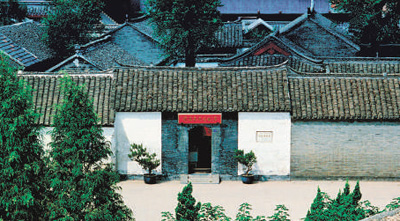
Huaian Zhouenlai Guju.
Visiting Information
-
Opening Hours: The complex is open daily from 9:00 AM to 6:00 PM, allowing ample time for visitors to explore the various sections without feeling rushed.
-
Location: Easily accessible within Huaian, the residence is ideally situated for those looking to delve into the city’s historical context and its connection to the Grand Canal, which has played a significant role in China’s economic and cultural exchanges throughout history.
Conclusion
A visit to Huaian Zhou Enlai Guju is an enriching experience that combines history, culture, and art, offering insights into one of the most important figures in modern Chinese history. Whether you’re a history enthusiast or a casual traveler, this site invites you to walk through the corridors of time and reflect on the legacy of a leader who dedicated his life to the service of his country.
Planning Your Visit: A Practical Guide
Practical Guide to Visiting the Zhou Enlai Former Residence
If you’re planning a trip to Huai’an, the Zhou Enlai Former Residence is a must-visit destination. This site not only celebrates the life of one of China’s most esteemed leaders but also provides a rich insight into the cultural heritage of the region. Here’s a practical guide to help you navigate your visit.
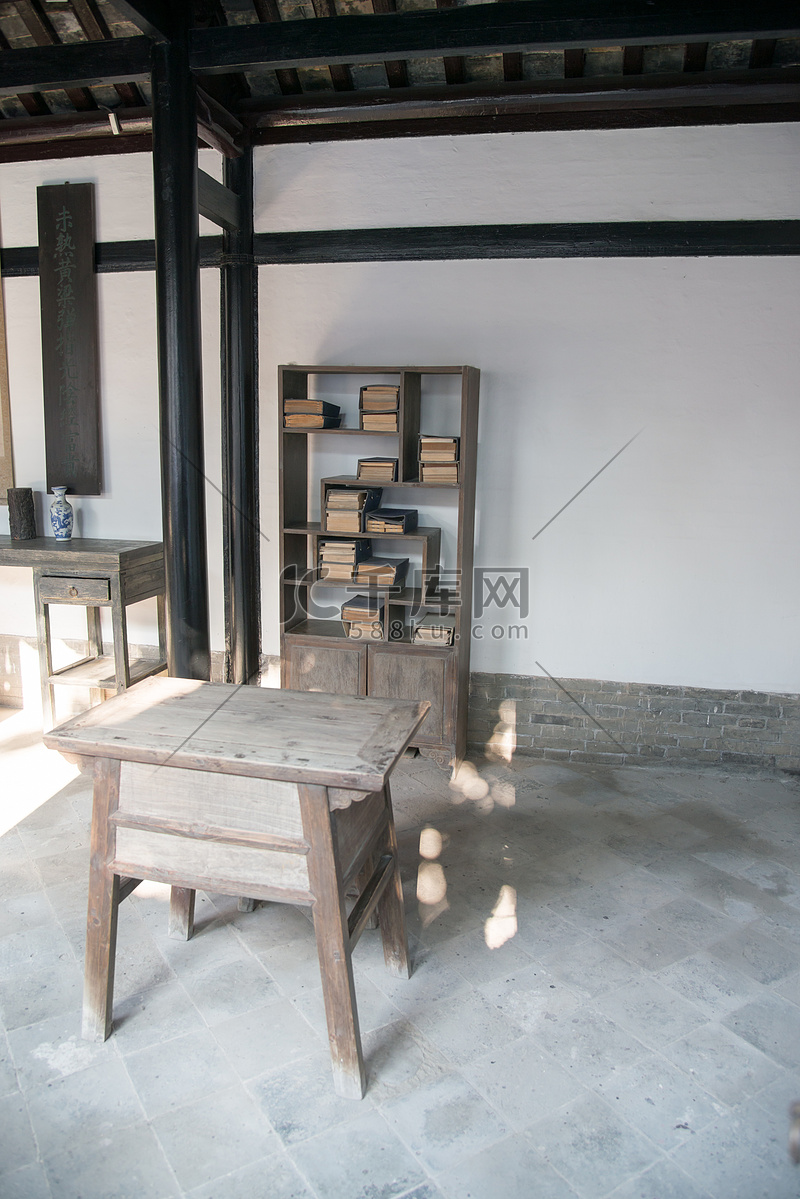
Huaian Zhouenlai Guju.
Location and Opening Hours
The Zhou Enlai Former Residence is located at 7 Fu Ma Xiang, Huai’an District, Jiangsu Province. It is open to visitors from 9:00 AM to 6:00 PM, Tuesday through Sunday. Please note that the residence is closed on Mondays. Admission to the site is free, but it is advisable to arrive early as it can get busy, especially on weekends.
Getting There
Huai’an is accessible by various modes of transport:
– By Train: The Huai’an East Railway Station connects with major cities such as Nanjing and Shanghai. From the station, you can take a taxi or local bus to reach the residence.
– By Bus: The city has a reliable bus network. Buses 1 and 5 stop near the residence.
– By Car: If you prefer driving, car rentals are available in the city, and parking is accessible at the site.
What to Expect
The Zhou Enlai Former Residence consists of two traditional-style courtyards that showcase the typical architecture of northern Jiangsu. As you wander through the residence, you will find:
– Exhibits and Artifacts: The residence features various memorabilia from Zhou Enlai’s life, including photographs, personal items, and historical documents that highlight his contributions to China.
– Calligraphy Gallery: The on-site gallery displays over a hundred pieces of donated calligraphy and paintings from renowned artists, including notable leaders and cultural figures.
Suggested Itinerary
To make the most of your visit, consider the following itinerary:
1. Start at the Zhou Enlai Former Residence: Spend at least an hour exploring the exhibits and the beautiful gardens.
2. Visit the Zhou Enlai Memorial Hall: Just a short walk away, this hall provides further insight into Zhou Enlai’s life and legacy. Allocate around 1-2 hours.
3. Explore Nearby Attractions:
– Huai’an Prefectural Office: A historically significant site showcasing ancient administrative architecture.
– Liangxi River Cultural Corridor: A scenic area perfect for a leisurely stroll or boat ride, especially beautiful at sunset.
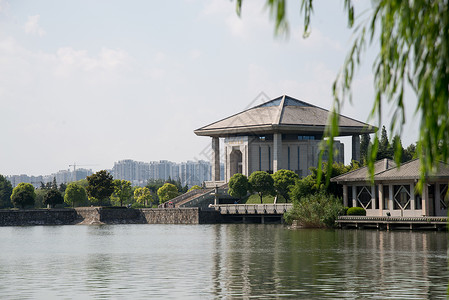
Huaian Zhouenlai Guju.
Nearby Dining Options
After your exploration, you might want to try some local delicacies:
– Wang’s Dumplings: Known for their crab soup dumplings, a Huai’an specialty.
– Jiangsu Cuisine Restaurants: Sample dishes like Longfish noodles and Pingqiao tofu in nearby eateries, where you can experience the region’s famous culinary delights.
Tips for Visitors
- Dress Comfortably: Wear comfortable shoes as you’ll be walking through various exhibitions and gardens.
- Photography: Feel free to take photos, but be respectful in areas where photography may be restricted.
- Plan Ahead: If you’re visiting during peak tourist seasons or holidays, consider making a reservation for guided tours to avoid long waits.
Conclusion
A visit to the Zhou Enlai Former Residence is not only educational but also a reflective experience that connects you with China’s modern history. By following this guide, you can ensure a smooth and enriching visit to one of Huai’an’s most significant cultural sites. Enjoy your journey through history!
Tickets, Hours, and Booking
Visiting the Huaian Zhou Enlai Former Residence is a captivating experience, especially considering that entry to this historical site is completely free of charge. This makes it accessible for everyone who wishes to explore the birthplace and childhood home of one of China’s most revered leaders.
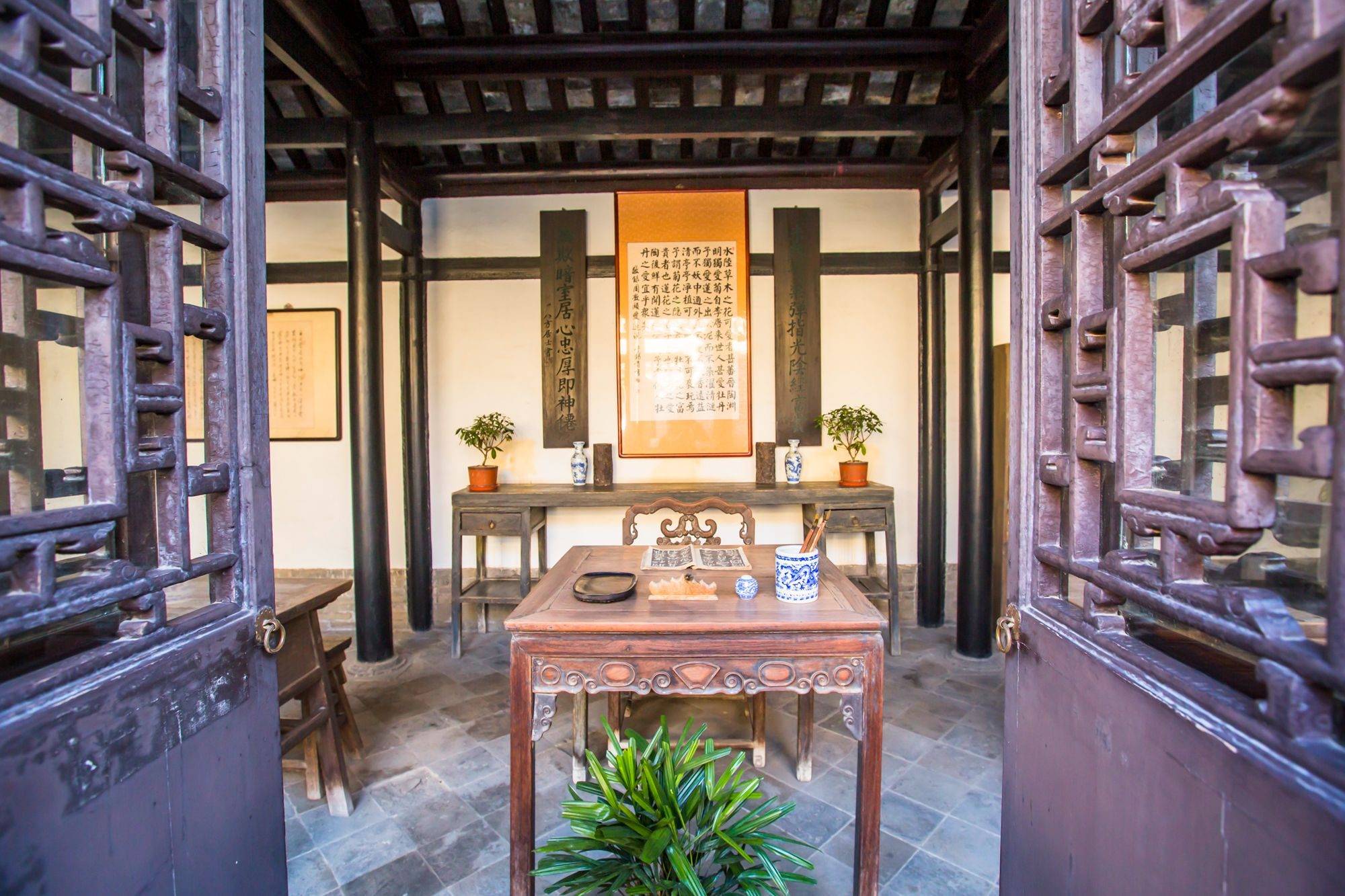
Huaian Zhouenlai Guju.
The residence is open to the public from 9:00 AM to 6:00 PM (last entry at 4:30 PM), allowing ample time for visitors to immerse themselves in the rich history and culture surrounding Zhou Enlai’s early life. To ensure a smooth visit, it’s advisable to arrive early, particularly during weekends or holidays when the site can attract larger crowds.
While there is no ticket fee, visitors are encouraged to pre-register online to manage visitor flow, especially during peak seasons. This simple step can enhance your experience by minimizing wait times and ensuring you can fully appreciate the exhibits and the serene environment.
In addition to the residence, nearby attractions such as the Zhou Enlai Memorial Hall and the picturesque Huai River provide further opportunities to delve into the history of Huai’an and its significant cultural heritage. Enjoy your journey through this historic city and the legacy of Zhou Enlai!
How to Get There
Getting to and around Huaian Zhou Enlai Guju (周恩来故居) offers a range of convenient options for travelers looking to explore this historic site in Jiangsu Province, China. Whether you’re coming from a nearby city or traveling internationally, the transportation methods available ensure a smooth journey to this significant location.
Arriving in Huaian
By Train
Huaian is well-connected by rail, making train travel one of the most convenient options. The Huaian East Railway Station (淮安东站) offers high-speed train services that can get you from major cities such as Nanjing (approximately 1 hour), Xuzhou (around 1.5 hours), and Shanghai (about 2.5 hours). After arriving at the station, you can take a taxi or use local public transport to reach Zhou Enlai’s former residence.
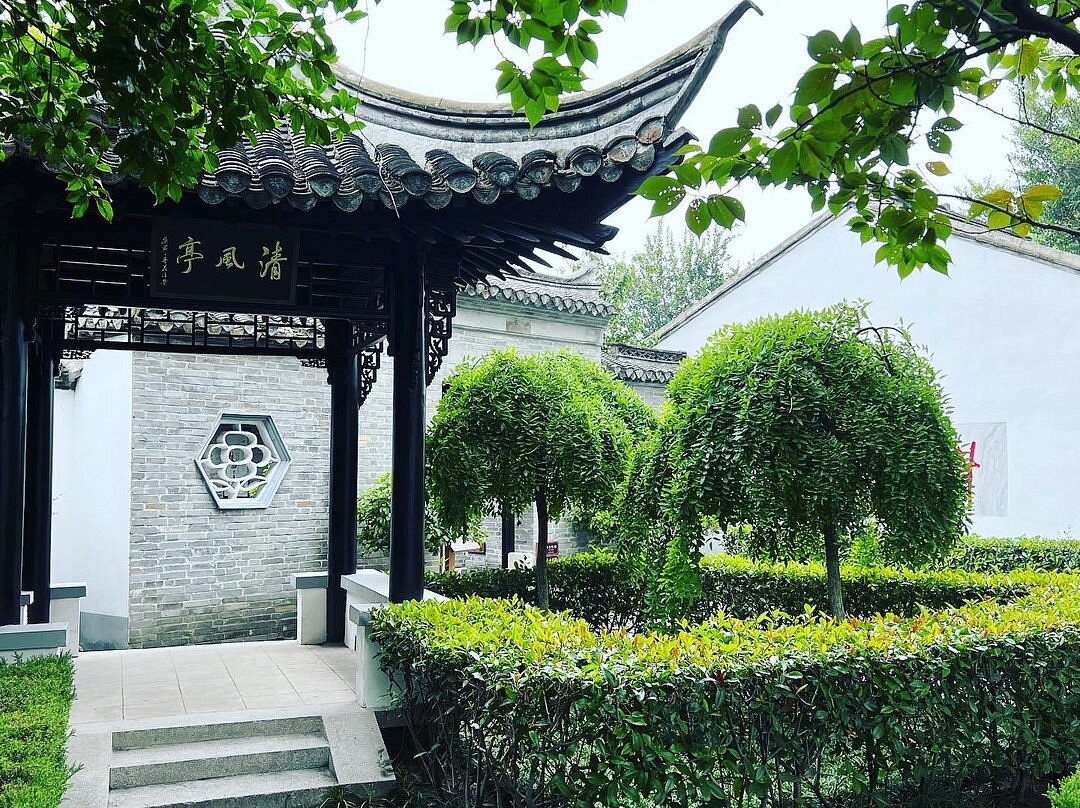
Huaian Zhouenlai Guju.
By Bus
Long-distance buses also serve Huaian, with several routes from major cities. Buses from places like Nanjing or Suzhou can be a cost-effective option. Once you arrive at the Huaian bus station, taxis are readily available to take you to your destination.
By Car
For those who prefer driving, renting a car is a great option. The city is accessible via the Beijing-Shanghai Expressway (京沪高速), which connects to various other highways leading to nearby cities. Parking is available at the Zhou Enlai Guju for those who drive.
By Air
The nearest airport is the Huaian Lianshui Airport (淮安涟水机场), which is about 30 kilometers (approximately 18 miles) from the city center. There are domestic flights connecting Huaian to cities like Beijing, Guangzhou, and Shanghai. From the airport, you can catch a taxi or arrange for a shuttle service to take you directly to the Zhou Enlai Guju.
Local Transportation in Huaian
Once you’re in Huaian, navigating the city is straightforward:
Public Transportation
Huaian has a network of buses that can take you to various attractions, including the Zhou Enlai Guju. Bus routes are efficient and inexpensive, making them a good choice for budget travelers. Key bus lines that service the area include Line 1 and Line 5, which have stops near the Zhou Enlai residence.
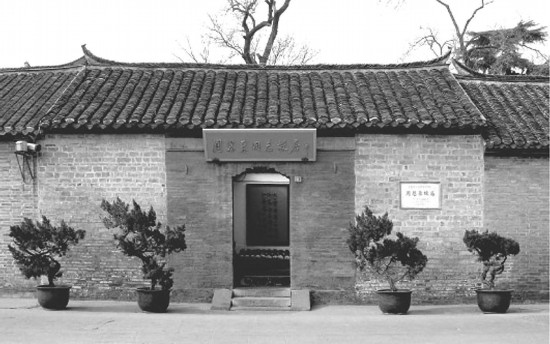
Huaian Zhouenlai Guju.
Taxis and Ride-Sharing
Taxis are widely available throughout Huaian and are a convenient way to get around, especially if you’re traveling in a group or have luggage. Ride-sharing services like Didi are also popular, providing a user-friendly alternative to traditional taxis.
Bicycles
For a more leisurely exploration, consider renting a bicycle. Many areas in Huaian are bike-friendly, and cycling can be a pleasant way to enjoy the local scenery while heading to the Zhou Enlai Guju and other nearby attractions.
Walking
The Zhou Enlai Guju is located in a pedestrian-friendly area, and walking is a delightful way to soak in the historic atmosphere of Huaian. The proximity of other cultural sites, such as the Huai’an Museum and the scenic Li Canal, makes it easy to explore on foot.
With these transportation options at your disposal, visiting the Zhou Enlai Guju can be a seamless and enjoyable experience, allowing you to focus on appreciating the rich history and culture surrounding this important landmark.
Local Cuisine and Accommodation
When exploring the historical significance of Huaian and the Zhou Enlai Memorial, it’s essential to savor the local cuisine and find comfortable accommodations to enhance your experience. Here’s a curated guide to dining and staying in this charming city.
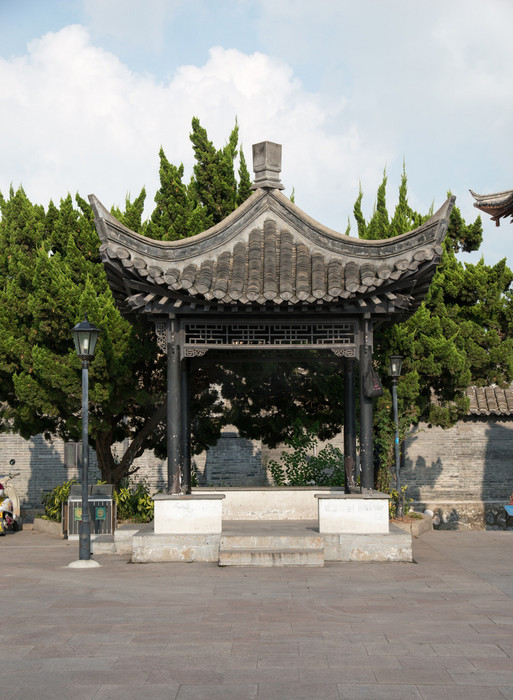
Huaian Zhouenlai Guju.
Culinary Delights
Huaian is a treasure trove of culinary experiences, predominantly known for its Huaiyang cuisine, one of the four major schools of Chinese cooking. Here are some must-try dishes and where to find them:
-
Soft-Shelled Longfish Noodles (软兜长鱼面): This signature dish features tender longfish served with delicate noodles in a savory broth. For an authentic taste, head to Lao Zhihao Longfish Noodle Restaurant, where you can indulge in this local favorite.
-
Crab Roe Soup Dumplings (蟹黄汤包): Renowned for their thin skins and rich, flavorful broth, these dumplings are a culinary highlight. Stop by Wenlou Soup Dumpling for a taste that many claim is the best in the region.
-
Flat Bridge Tofu (平桥豆腐): Silky and smooth, this tofu dish is a staple in Huaian and can be found at Xiao Li Jianbing, a place known for its affordable yet delicious local snacks.
-
Xuzhou Lobster (盱眙小龙虾): If you’re visiting in the summer, don’t miss out on this seasonal delicacy, often enjoyed with a variety of dipping sauces. Local eateries in Hexia Ancient Town offer fresh options that are worth trying.
-
Tea Snacks (茶饼): Perfect for a light bite, these crispy treats can be enjoyed at various tea houses, particularly in Huai’an Flower Street, where you can relax with a cup of tea and a snack amidst a vibrant atmosphere.
Where to Stay
For your accommodation, there are several options that cater to different preferences and budgets:
-
Huaian Enlai Hotel (淮安恩来酒店): Located conveniently near the Zhou Enlai Memorial and other attractions, this hotel offers comfortable rooms with modern amenities. The friendly staff and excellent service make it a popular choice among travelers.
-
Baiyun Hotel (白云酒店): This mid-range option is known for its spacious rooms and cozy atmosphere, perfect for families or groups. The hotel is situated close to local dining options, making it easy to explore the culinary scene.
-
Riverside Inn (河边客栈): For a more intimate experience, consider staying at this charming inn located near the Grand Canal. It features traditional decor and personalized service, ensuring a memorable stay.
-
Budget-Friendly Hostels: If you’re looking for economical accommodation, there are several hostels in the city that provide dormitory-style rooms and a chance to meet fellow travelers. Huaian Youth Hostel is a recommended spot that offers clean facilities and a friendly environment.
In conclusion, your visit to Huaian and the Zhou Enlai Memorial will be enriched by indulging in its exquisite cuisine and choosing the right place to stay. Whether you opt for local delicacies or a cozy hotel, the city’s offerings will surely leave a lasting impression.
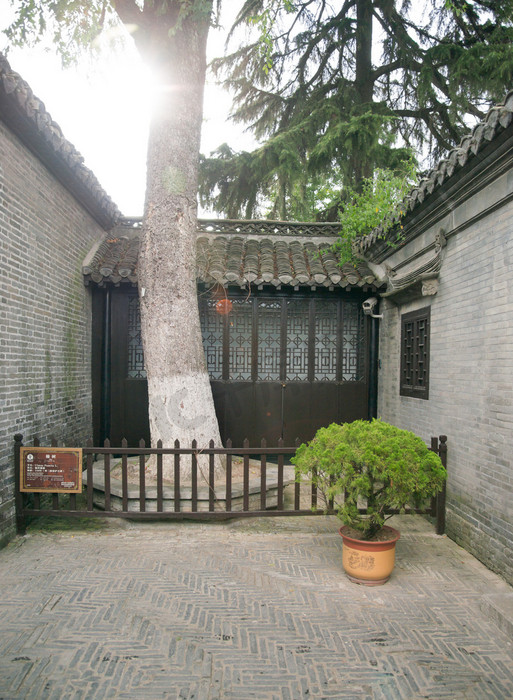
Huaian Zhouenlai Guju.
Frequently Asked Questions
-
What are the opening hours for the Zhou Enlai Former Residence?
The Zhou Enlai Former Residence is open from 9:00 AM to 6:00 PM, Tuesday to Sunday. It is closed on Mondays. -
Is there an admission fee to visit the Zhou Enlai Former Residence?
Admission to the Zhou Enlai Former Residence is free of charge. -
How long should I plan to spend at the Zhou Enlai Former Residence?
Visitors typically spend about 1 to 2 hours exploring the residence and its exhibits, depending on their interest in the history and artifacts on display. -
What is the best way to get to the Zhou Enlai Former Residence?
The residence is located in Huai’an, Jiangsu Province. It is easily accessible by public transportation, including buses, or by taxi. Many visitors also choose to rent bicycles for a scenic ride around the area. -
Are there any notable exhibits in the Zhou Enlai Former Residence?
Yes, the residence features numerous valuable artifacts related to Zhou Enlai’s life, including calligraphy and paintings donated by prominent artists and leaders. There are also exhibitions detailing his early life and contributions to China. -
Can I take photographs inside the Zhou Enlai Former Residence?
Photography policies may vary, so it is advisable to check for any specific restrictions upon your arrival. Generally, exterior photography is allowed, while some indoor areas may have restrictions. -
Are there facilities such as restrooms and refreshments available at the site?
Yes, there are restrooms available for visitors. However, there may not be food or drink facilities on-site, so it’s advisable to bring your own refreshments or plan to visit nearby eateries. -
Is there any nearby accommodation for visitors to the Zhou Enlai Former Residence?
Yes, there are several hotels and guesthouses in the Huai’an area, ranging from budget options to more luxurious stays. Booking in advance is recommended, especially during peak tourist seasons.
Final Thoughts on Your Trip
Visiting the Huai’an Zhou Enlai Guju is more than just a journey through history; it’s an exploration of the values and ideals that shaped a nation. This sacred site, where the great Premier Zhou Enlai spent his formative years, offers a profound glimpse into the life of one of China’s most revered leaders. As you stroll through the meticulously preserved rooms and lush gardens, you’ll feel the echoes of past conversations and the weight of historical significance.
The surrounding area, rich with cultural heritage and picturesque landscapes, invites exploration beyond the memorial itself. From the serene beauty of the nearby parks to the vibrant local markets, every corner of Huai’an is infused with stories waiting to be discovered.
Whether you are a history buff, a cultural enthusiast, or simply seeking a tranquil getaway, Huai’an promises an enriching experience. Embrace the journey, soak in the history, and let the spirit of Zhou Enlai inspire you as you walk the paths he once tread. In a world where the past often feels distant, this remarkable site serves as a reminder of the enduring impact one individual can have on the course of a nation and the importance of remembering our roots.
